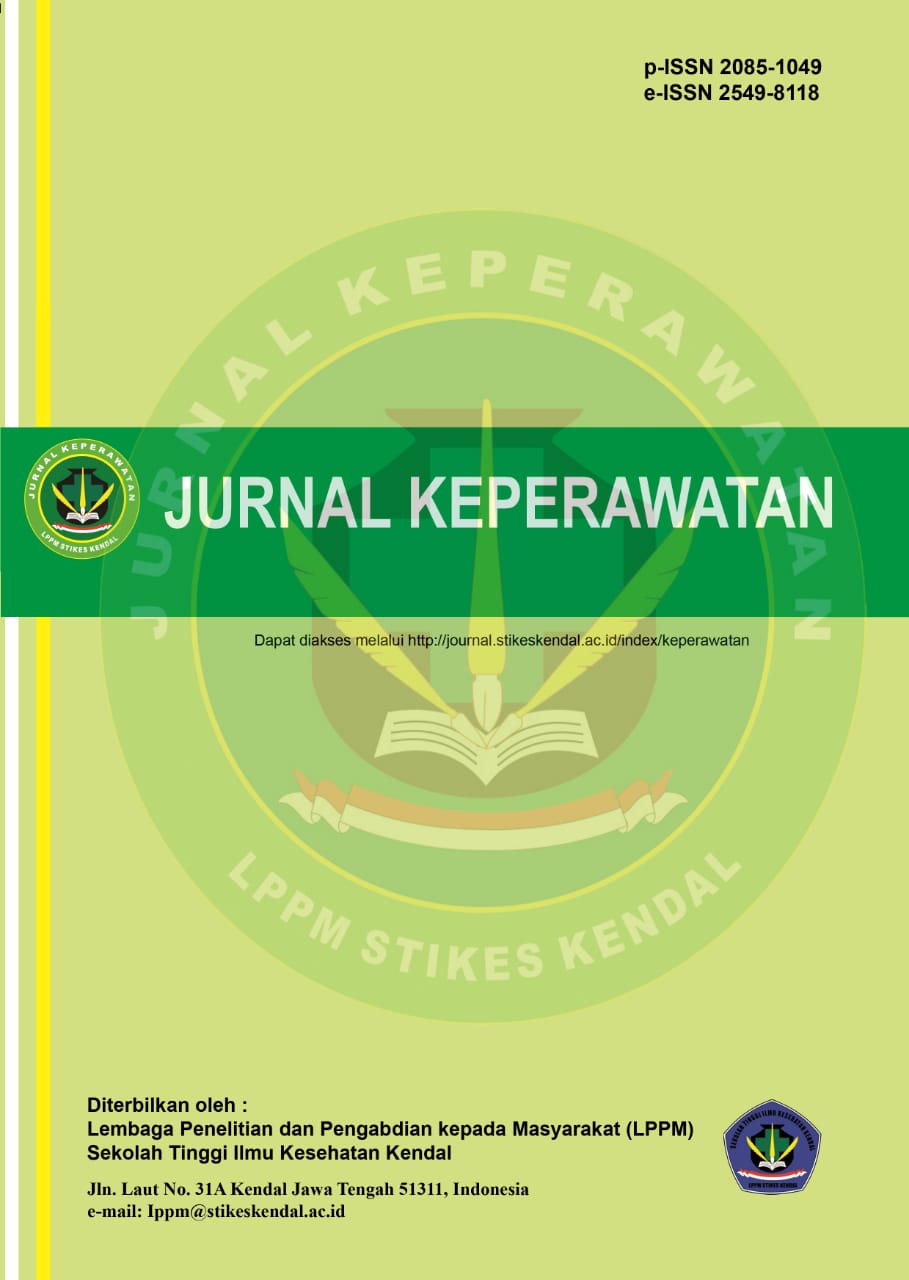Penggunaan Model Keyakinan Kesehatan untuk Menilai Niat dan Penerimaan Masyarakat dalam Melakukan Vaksinasi Booster Covid-19: A Literature Review
Keywords:
covid-19, health belief model, niat, penerimaan booster, vaksinAbstract
Vaksin COVID-19 terus dikembangkan, untuk mempersiapkan ketersediaan publik, penerimaan vaksin COVID-19 terus menurun, khususnya vaksin booster. Keraguan melakukan vaksin merupakan masalah kesehatan yang kompleks. Efektifitas, keamanan dan efek samping menjadi salah satu penyebab perilaku atau niat masyarakat menurun dan semakin ragu dalam melakukan vaksinasi booster COVID-19. Tujuan penulisan tinjauan sistematis ini untuk memprediksi model keyakinan masyarakat untuk menilai niat dan penerimaan dalam melakukan vaksinasi booster COVID-19. Pencarian literature dilakukan pada 5 database yaitu Scopus, PubMed, Web Of Science, Sage dan Pro Quest. Pencarian dilakukan pada Oktober 2022. Kata Kunci yang dilakukan dengan menggunakan “COVID-19 OR Coronavirus Disease AND Vaccine AND Accept AND Booster AND Dose AND Health Belief Model” dengan melakukan restraksi pada tahun 2019-2022 dalam bahasa Inggris dan indonesia artikel full text, sehingga mendapatkan artikel yang relevan. Jumlah artikel yang diidentifikasi adalah Scopus 6 artikel, PubMed 8 artikel , Web Of Science 6 artikel, Sage 232 artikel dan Pro Quest 179 artikel dengan total 431 artikel. Dari 431 artikel yang didapatkan, ada 11 artikel yang sesuai dengan kriteria penulisan tinjauan sistematis ini. Prediktor penting dari niat pasti untuk mengambil vaksinasi booster COVID-19 termasuk manfaat yang dirasakan tinggi dan hambatan yang dirasakan lebih rendah untuk menerima vaksin, dan kerentanan yang dirasakan lebih tinggi terhadap infeksi.
References
Amir, H. et al. (2020) ‘Covid19 pandemic: management and global response’, JurnalKesehatan Lingkungan, 12, pp. 121–128. Available at: https://e-journal.unair.ac.id/JKL/article/view/21050.
Amir, H. (2022) ‘REVIEW ARTICLE STRATEGIES IN PREVENTING THE TRANSMISSION OF COVID-19 A QUARANTINE , ISOLATION , LOCKDOWN , TRACING , TESTING AND TREATMENT ( 3T ) : LITERATURE REVIEW’, Asia-Pasific Journal of Helath Management, 17(2), pp. 1–6. doi: 10.24083/apjhm.v17i2.1465.
Ao, Q. et al. (2022) ‘Acceptance of COVID-19 Vaccines among Adults in Lilongwe, Malawi: A Cross-Sectional Study Based on the Health Belief Model.’, Vaccines, 10(5). doi: 10.3390/vaccines10050760.
Bults, M. et al. (2011) ‘Perceived risk, anxiety, and behavioural responses of the general public during the early phase of the Influenza A (H1N1) pandemic in the Netherlands: results of three consecutive online surveys.’, BMC public health, 11, p. 2. doi: 10.1186/1471-2458-11-2.
Carpenter, C. J. (2010) ‘A meta-analysis of the effectiveness of health belief model variables in predicting behavior.’, Health communication, 25(8), pp. 661–669. doi: 10.1080/10410236.2010.521906.
Freeman, D. et al. (2020) ‘COVID-19 vaccine hesitancy in the UK: the Oxford coronavirus explanations, attitudes, and narratives survey (Oceans) II.’, Psychological medicine, pp. 1–15. doi: 10.1017/S0033291720005188.
Ghazy, R. M. et al. (2022) ‘Acceptance of COVID-19 Vaccine Booster Doses Using the Health Belief Model: A Cross-Sectional Study in Low-Middle- and High-Income Countries of the East Mediterranean Region.’, International journal of environmental research and public health, 19(19). doi: 10.3390/ijerph191912136.
Guillon, M. and Kergall, P. (2021) ‘Factors associated with COVID-19 vaccination intentions and attitudes in France.’, Public health, 198, pp. 200–207. doi: 10.1016/j.puhe.2021.07.035.
Hyman, R. B. et al. (1994) ‘Health Belief Model variables as predictors of screening mammography utilization.’, Journal of behavioral medicine, 17(4), pp. 391–406. doi: 10.1007/BF01858010.
Lai, X. et al. (2021a) ‘Public Perceptions and Acceptance of COVID-19 Booster Vaccination in China: A Cross-Sectional Study.’, Vaccines, 9(12). doi: 10.3390/vaccines9121461.
Lai, X. et al. (2021b) ‘Public perceptions and acceptance of covid-19 booster vaccination in china: A cross-sectional study’, Vaccines, 9(12), pp. 1–17. doi: 10.3390/vaccines9121461.
Maria, S. et al. (2022) ‘COVID-19 Booster Vaccine Intention by Health Care Workers in Jakarta, Indonesia: Using the Extended Model of Health Behavior Theories’, Tropical Medicine and Infectious Disease, 7(10). doi: 10.3390/tropicalmed7100323.
Orji, R., Vassileva, J. and Mandryk, R. (2012) ‘Towards an effective health interventions design: an extension of the health belief model.’, Online journal of public health informatics, 4(3). doi: 10.5210/ojphi.v4i3.4321.
Peretti-Watel, P. et al. (2020) ‘A future vaccination campaign against COVID-19 at risk of vaccine hesitancy and politicisation’, The Lancet Infectious Diseases, 20(7), pp. 769–770. doi: https://doi.org/10.1016/S1473-3099(20)30426-6.
Qin, C. et al. (2022) ‘Acceptance of a Third Dose of COVID-19 Vaccine and Associated Factors in China Based on Health Belief Model: A National Cross-Sectional Study.’, Vaccines, 10(1). doi: 10.3390/vaccines10010089.
Shah, S. et al. (2022) ‘Factors associated with COVID-19 vaccination intent in Singapore, Australia and Hong Kong.’, Vaccine, 40(21), pp. 2949–2959. doi: 10.1016/j.vaccine.2022.03.062.
Tokiya, M. et al. (2022) ‘Acceptance of Booster COVID-19 Vaccine and Its Association with Components of Vaccination Readiness in the General Population: A Cross-Sectional Survey for Starting Booster Dose in Japan’, Vaccines, 10(7). doi: 10.3390/vaccines10071102.
Wirawan, G. B. S. et al. (2022) ‘Health Beliefs and Socioeconomic Determinants of COVID-19 Booster Vaccine Acceptance: An Indonesian Cross-Sectional Study.’, Vaccines, 10(5). doi: 10.3390/vaccines10050724.
Wong, M. C. S. et al. (2021) ‘Acceptance of the COVID-19 vaccine based on the health belief model: A population-based survey in Hong Kong.’, Vaccine, 39(7), pp. 1148–1156. doi: 10.1016/j.vaccine.2020.12.083.
Yang, X., Wei, L. and Liu, Z. (2022) ‘Promoting COVID-19 Vaccination Using the Health Belief Model: Does Information Acquisition from Divergent Sources Make a Difference?’, International Journal of Environmental Research and Public Health, 19(7). doi: 10.3390/ijerph19073887.
Zampetakis, L. A. and Melas, C. (2021) ‘The health belief model predicts vaccination intentions against COVID-19: A survey experiment approach.’, Applied psychology. Health and well-being, 13(2), pp. 469–484. doi: 10.1111/aphw.12262.
Downloads
Published
How to Cite
Issue
Section
License
Copyright (c) 2022 Jurnal Keperawatan

This work is licensed under a Creative Commons Attribution-NonCommercial-NoDerivatives 4.0 International License.



